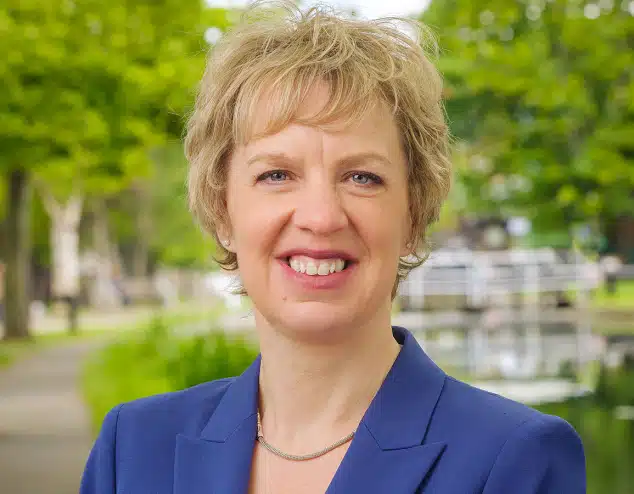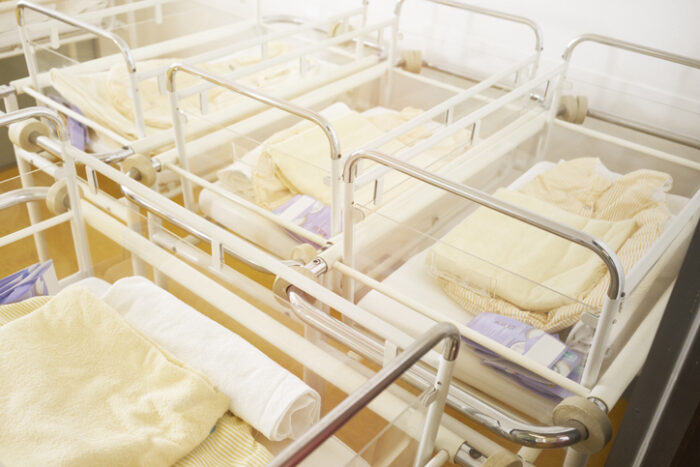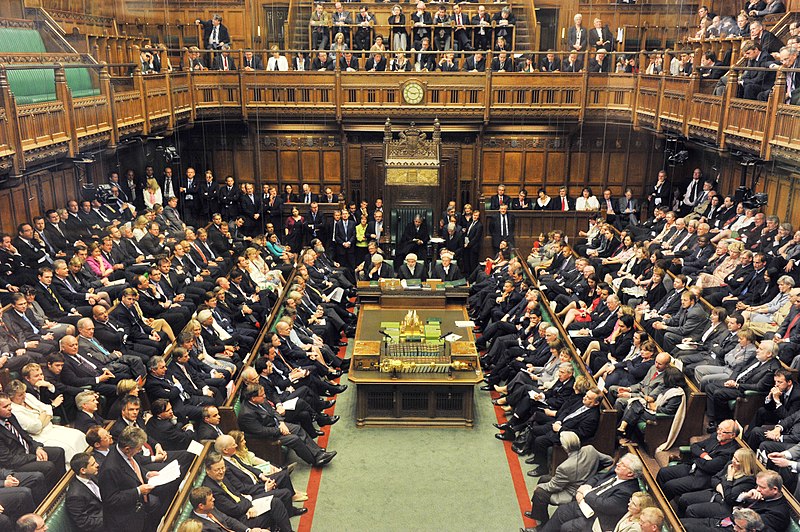
The leader of the Labour Party has called for a radical rewrite of the Irish Constitution to strip it of its remaining religious language and the Catholic social teaching that she says underpins its mains provisions.
In a major speech last year, Supreme Court Justice, Gerard Hogan, defended the Constitution from this sort of attack and said some of its religious provisions are not unusual in a European context.
Speaking at the MacGill Summer School last week, Ivana Bacik TD, said that while some religious references were removed, “we still see doctrinal teaching so influential in the text”.
“We see religion denominating throughout and that is a key reason why we need the radical rewrite and a key reason to say yes, the text is atrophied, and it is no longer fit for purpose in a 21st century secular, polarised republic”.
“A theocratic ethos is evident in the text, particularly in the Preamble and in provisions requiring that a religious Oath be taken by a newly-elected President, and by newly appointed members of the judiciary and of the Council of State.
“The same ethos is also evident in the Fundamental Rights Articles 40-44, which reflect religious doctrinal teaching, and recognise only a selective set of liberal rights”.
As the present text will turn 90 in 2027, she called for a new text to reflect 21st Century Ireland “framed in secularised language that is appropriate for our Republic”.

‘Baby recessions’ in Australia’s biggest cities deepened in 2024 amid sustained cost-of-living pressures, dragging the nation’s birthrate to a near-record low in 2024 of 1.51 children per couple.
Sydney, Melbourne and Brisbane each saw declines in the number of children born per woman from 2023 to 2024, according to a preliminary analysis of Australian Bureau of Statistics population data.
The analysis also found outer-suburban and regional Australians grew increasingly likely to have more children per person than their inner-city neighbours.
While large metropolis’s saw fertility rates fall further in 2024, the decline was in part offset by increased childbirths in regional centres as young parents pursued jobs and affordable housing in smaller cities.
Overall, the country’s fertility rate, or children born per woman, was 1.51 in 2024, statistically similar to the 1.5 observed in 2023 and well below the rate of 1.8 observed a decade beforehand. Replacement level fertility is 2.1,

Ireland’s new “woke society” has been accused of lacking respect for “traditional Irish culture” by a Fianna Fáil Councillor in Cork.
Earlier this week, Cork City Council approved a motion to examine whether Bishop Lucey Park should be renamed citing, among other reasons, clerical abuse that took place during the former Bishop of Cork’s tenure.
Councillor Terry Shannon (FF) opposed the motion, calling it an imposition by “the liberal or radical left” of “a new kind of ‘woke society’”.
“These people, they talk about inclusivity and tolerance, but that doesn’t extend to traditional Irish cultures.”
The councillor asked if the park is to be renamed on the basis of failures of the Catholic Church – then what comes next: “Will we take down Fr Matthew off the plinth? Will we rename St Patrick’s Street?
“Will we take down the Papal Cross at the Phoenix Park? Will everyone called John Paul be asked to change their names?
“If we are being preached by these people about inclusivity, tolerance and we’re all in this together, shouldn’t they have a bit of tolerance for people who have what they might describe as traditional values?”, he said.

New research shows parents of young children experience greater meaning in life than nonparents, although younger mothers tended to be less satisfied in life than their childless counterparts.
Using data from the European Social Survey on those with minor children in the home and those without, the authors found both male and female parents reported more meaning in life than nonparents, across all age, educational, and partnership categories.
On the other hand, for all women combined, life satisfaction was highest among those without young children in the home, whereas for all men combined, life satisfaction was highest among those with young children in the home.
Young mothers reported significantly lower life satisfaction than nonmothers in the same age group. However, older mothers, mothers with a high level of education, and married mothers reported higher levels of life satisfaction.
Fathers reported higher life satisfaction in all categories except the youngest age group, unmarried men, and men with no partners.
Unpartnered women with children displayed significantly less satisfaction in life than partnered and married women with children, all else being equal.
Yet, unpartnered women with children expressed significantly more meaning in life than women without children.

An Israeli tank fired a shell at Gaza’s only Catholic Church yesterday that has left three dead and 10 wounded, two seriously and one critically.
While the Israeli government has said the tank fire was not deliberate, the Latin Patriarch of Jerusalem, Cardinal Pierrebattista Pizzaballa, has expressed doubts.
“What we know for sure is that a tank, the IDF says by mistake, but we are not sure about this, they hit the church directly, the Church of the Holy Family, the Latin Church,” he said.
Sources close to the patriarchate’s chancery told The Pillar that some officials believe the strike could be a deliberate act of retaliation—a direct response to an intervention by Church leaders on Monday that accused Israeli authorities of enabling attacks from illegal Israeli settlements in the West Bank on local communities.
The heads of the Latin and Orthodox Churches met at Taybeh, the last remaining Christian town in the West Bank and the site of several recent attacks on local Christians by extremist Israeli settlers. Also in attendance were diplomatic representatives of the EU and 20 nations as well as international media.

29.7pc of all recorded conceptions in England and Wales in 2022 ended in abortion, according to figures released by the UK’s Office for National Statistics.
This is the highest proportion on record, up from 26.54pc a year earlier – and a large increase since 2012, when 20.84pc ended in abortion
The UK annual conception statistics count births and abortions obtained from administrative sources but do not include miscarriages or illegal abortions.
Overall, the figures revealed that there were 834,260 recorded conceptions for women resident in England and Wales in 2022, and 247,703 of these led to abortion.

Members of Parliament should be forced to declare their membership of a faith, and abstain from voting, on life issues like abortion and euthanasia, according to a Liberal Democrat MP.
Chris Coghlan, who represents a constituency in Surrey, told the Times that the recent debate on assisted suicide showed there was a “conflict of interest” for Catholic MPs and Lords that needed to be remedied.
“In the same way that if you own shares in a company and you’re talking about that company in a debate, you would declare that conflict of interest beforehand. And you probably would not vote either.
“I think it’s a major problem for parliament in that we have this bill going through right now and the actions of Catholic parliamentarians could have a material impact on that”, he said.
Mr Coghlan, a practicing Catholic himself, objected to his own priest saying he would deny him communion after having voted to legalise assisted suicide.
In response, Mr Coghlan said: “My private religion will continue to have zero direct relevance to my work as an MP representing all my constituents without fear or favour”.

The number of women having abortions in Ireland rose significantly last year to at least 10,852, the highest on record since the law changed. Full figures for hospitals-based abortions are not yet in.
Pro Life Campaign spokesperson Eilís Mulroy called the latest figures truly shocking and critiqued the Government for doing nothing to “try and reduce the spiralling numbers”.
She continued: “1 in 6 pregnancies now end in abortion. . . That’s a truly horrifying figure and it’s the opposite of what senior politicians promised the public would happen if they voted for repeal”.
She added that the 2024 figure represents a 280% increase from the 2,879 Irish abortions that happened in other jurisdictions in 2018, the last year before legislation make the procedure widely available in Ireland.
“Government figures tell us 55,000 abortions have occurred in Ireland since the law changed. The sadness and scale of the numbers is hard to comprehend”.
Meanwhile, Dr Shirley McQuade, medical director of the Well Woman Centre, told the Irish Independent she was surprised at the high number, given that free contraception is now available to women aged 17 to 35 years of age, which, she said, was meant to make it easier to control fertility.

A United Nations committee has said the Irish Government should remove ‘stereotypical language’ from the Constitution by running another vote on the article on ‘mothers in the home’.
This is despite a referendum having voted by a historic 3-1 margin to keep the present provision that seeks to protect mothers from being forced out of the home by economic necessity.
In a report published last week, the UN’s Committee on the Elimination of Discrimination Against Women (CEDAW) said it “recommends that the State party conduct an independent evaluation of the referendum, carry out information campaigns on the negative reinforcement by article 41.2 of gender stereotypes about women’s roles in the home and undertake inclusive public consultations to find alternative wording with a view to holding another constitutional referendum on amending article 41.2 of the Constitution to remove the stereotypical language on the role of women in the home”.
The article recognises the work of women in the family home is a contribution to the State “without which the common good cannot be achieved” and adds that mothers specifically should not be “obliged by economic necessity to engage in labour to the neglect of their duties in the home.”

Escalating attacks by extremist Israeli settlers on the last remaining Christian town in the West Bank have prompted an emergency appeal by local Church leaders for immediate international intervention to protect their land, homes, and sacred sites.
In a statement, the priests of the Greek Orthodox, Latin, and Melkite Greek churches “strongly condemn the ongoing and grave series of attacks targeting Taybeh”.
“These assaults threaten the security and stability of our town and aim at undermining the dignity of its residents and the sanctity of its sacred land”.
On Monday, extremist settlers set a fire near the town’s cemetery and the historic Church of Saint George (Al-Khadr), dating back to the 5th century.
They also set cattle loose on agricultural lands, damaging olive tree crops and preventing farmers from accessing their land.
The priests say that the area has “effectively become an open target for illegal settlement outposts that expand quietly under military protection”.
The ancient Christian community is now “at serious risk of erosion and displacement due to the systematic targeting of land, sacred places, and the local community”.
The priests called upon the international community to investigate the incidents and apply pressure on authorities to halt settler actions.